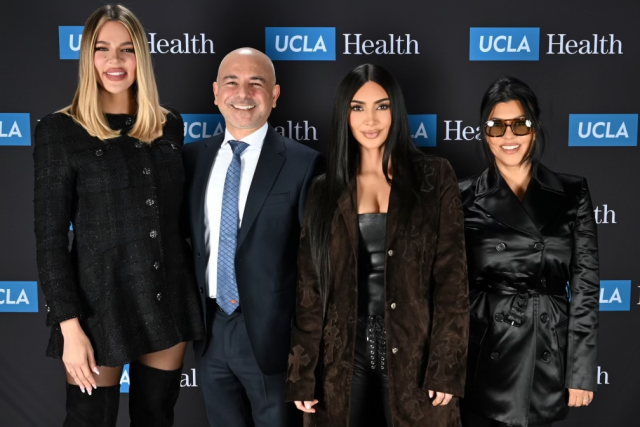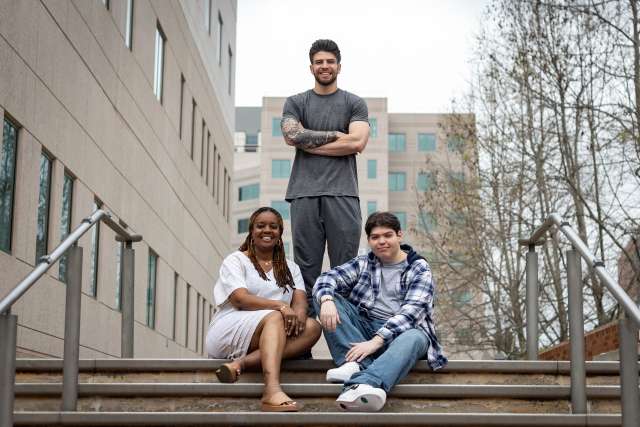A new UCLA program offers hope and potential answers for people who have undergone extensive medical testing that has failed to identify their illness.
“Undiagnosed diseases take a huge toll on patients, their families and the health care system,” said Dr. Katrina Dipple, who is a co-principal investigator of the program along with fellow UCLA geneticists Dr. Stanley Nelson, Dr. Christina Palmer and Dr. Eric Vilain. “The lack of a clear diagnosis can prevent patients from obtaining the correct care for their condition. Our goal is to quickly give patients a firm diagnosis and clarify the best way to treat them.”
The David Geffen School of Medicine at UCLA was one of six U.S. institutions chosen last year by the National Institutes of Health to help launch a $43 million initiative called the Undiagnosed Diseases Network. The NIH created the network to tackle the most difficult-to-solve medical cases and develop new ways to diagnose rare disorders. UCLA is accepting online applications for its program as of today.
People enrolled in the program will undergo an intensive weeklong assessment featuring a clinical evaluation, consultations with specialists and multiple medical tests, including DNA sequencing to uncover genetic mutations. The UCLA team will also evaluate the impact of genetic counseling and genomic test results on patients and families to develop best practices for conveying this information.
“A vast number of children and adults suffer from severe, often fatal undiagnosed disorders,” said Vilain. “This program is for patients who’ve been through the diagnostic ringer yet still received no information. We hope to discover new genes causing ultra-rare medical conditions and to identify environmental factors that lead to disease or interact with genes to cause disease.”
A $7.2 million that UCLA received from the NIH last year will minimize the cost of patients’ diagnostic testing.
To qualify, patients must be at least 1 month old and able to travel. They must be suffering from a disease that remains undiagnosed despite extensive medical evaluation. The online application, which is open to the public, requires a letter from the patient’s physician explaining the case. The physician may also apply on a patient’s behalf.
The breadth of the national program will enable researchers to share data with one other, boosting the likelihood of discovering multiple people with the same rare disorder.
“That’s the beauty of the network,” said Dipple. “By expanding the study population, we increase our chances of finding patients with the same disease and determining whether a single DNA change indeed caused their rare disorder.”
The Undiagnosed Diseases Network capitalizes on the strengths of UCLA’s genetic medicine program. The university’s Medical Genetics Clinic evaluates more than 750 new patients per year with state-of-the-art diagnostic testing that has uncovered multiple new disease-causing genes.
Patient evaluation will take place on the UCLA campus at the Clinical Translational Research Center of the Clinical and Translational Science Institute.



